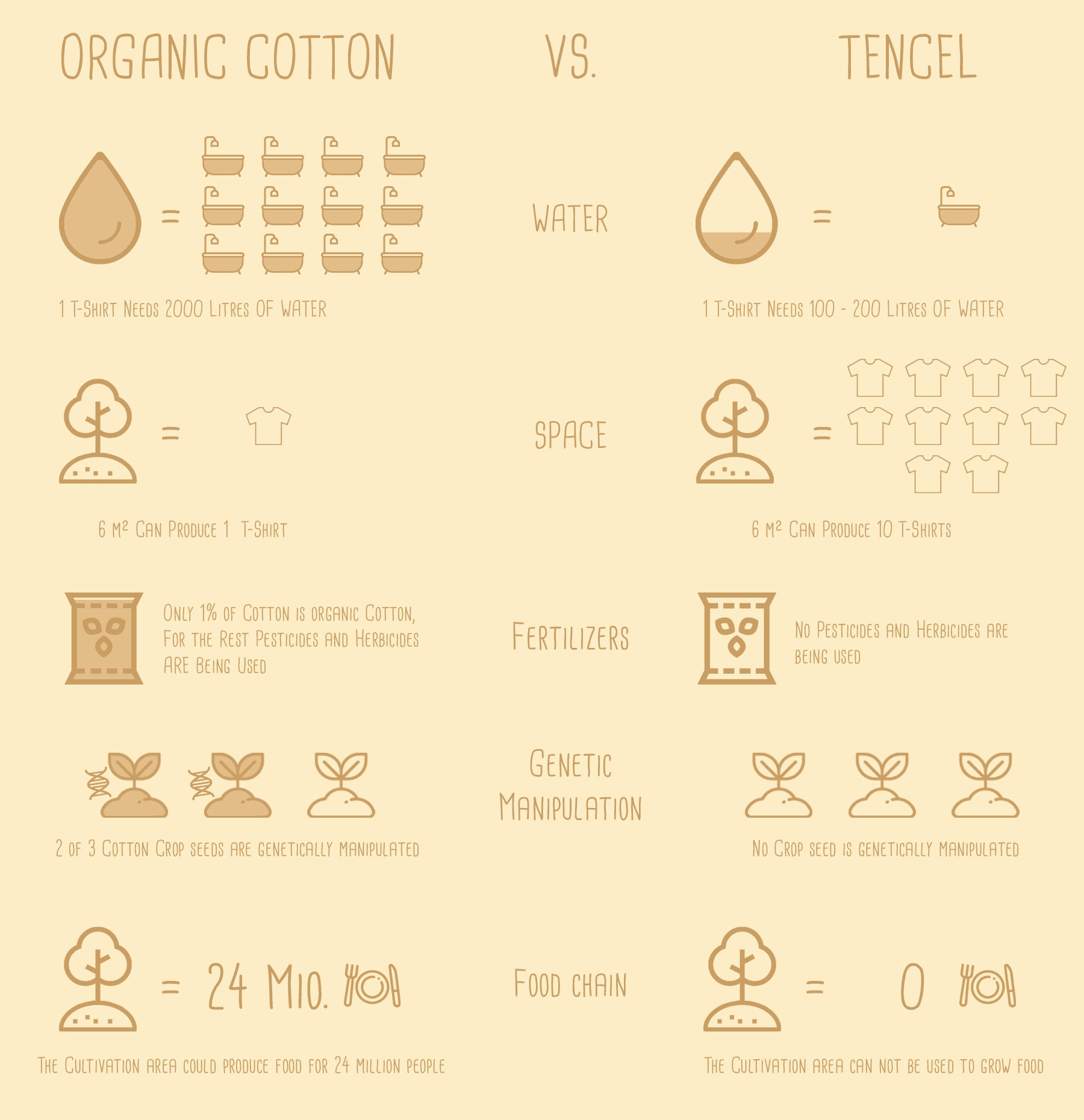Many still think that cotton is more sustainable than Tencel. Some even consider Tencel to be a synthetic material, being
made out of natural Beech or Eucalyptus wood. We would like to explain why Tencel is not only a high performance fabric, but also totally ecological.
Production of Tencel
Tencel, also called Lyocell, is produced from the pulp of the Eucalyptus or Beech wood. First, the wood is chopped into chips, then soaked in water, whereby the
Cellulose is dissolved. Water containing a non-toxic solvent is added to the pulp and heated up so that the liquid evaporates to form a viscous solution, which is then filtered and forced through spinnerets. Thus, the Tencel fiber is born.
For many, a very important argument against the sustainability of Tencel is that trees are being decimated for its production. Lenzing, the producer of Tencel / Lyocell, relies on
FSC-certified plantations, i.e. they work sustainably. No genetic engineering takes place and chemical fertilizers are not used. Beech and Eucalyptus are very fast-growing trees, so you can speak of a kind of cycle: that of always about the same number of trees being available. In addition, fabric remnants from the cuttings of cotton clothing are now also being used in the production of Tencel to protect from overusing the raw material wood.
Cotton vs. Tencel: Sustainability Check
About 30 million hectares of land worldwide are used for cotton cultivation. This roughly corresponds to an area the size of Germany. Assuming that you need 1.25 hectares of land to feed a person for a year, the arable area of this size could instead be used for planting food crops for about 24 million people.
For Tencel
no arable land is used that you could substitute for growing food on the plantations.
Beech and Eucalyptus need little water, so you do not have to irrigate the trees artificially. Cotton, on the other hand, has to be irrigated artificially and uses up to
10-20 times more water until the production of a T-shirt is finished.
In addition,
2/3 of the cotton plants are genetically modified. The use of pesticides, insecticides and herbicides is common and harms humans and nature. Only about 1% of the total cotton grown is actually organic and does not require genetic modification nor harmful fertilizers. Beech and Eucalyptus, on the other hand, are never genetically modified nor are chemical fertilizers applied.

Lyocell: Perfect for Yoga and other Activities
Considering its effect on the environment, Tencel is not only much better than cotton. The fabric also scores points with its high-performance properties. Lyocell warms in the cold and cools in the heat, thus ensuring a pleasant feeling during exercise. And, should you get into a sweat, you can relax: Tencel can absorb 50% more water than cotton and directs the body moisture into the fibers, so you do not feel sweaty so fast. The excellent moisture management of Tencel is also particularly suitable for persons with sensitive skin or allergy sufferers. Another benefit is that the amount of bacteria in the fabric is much lower as compared to cotton.
You want to test Tencel? Let yourself be inspired by our wide selection of Tencel Yoga Wear to look for your new favorite.































